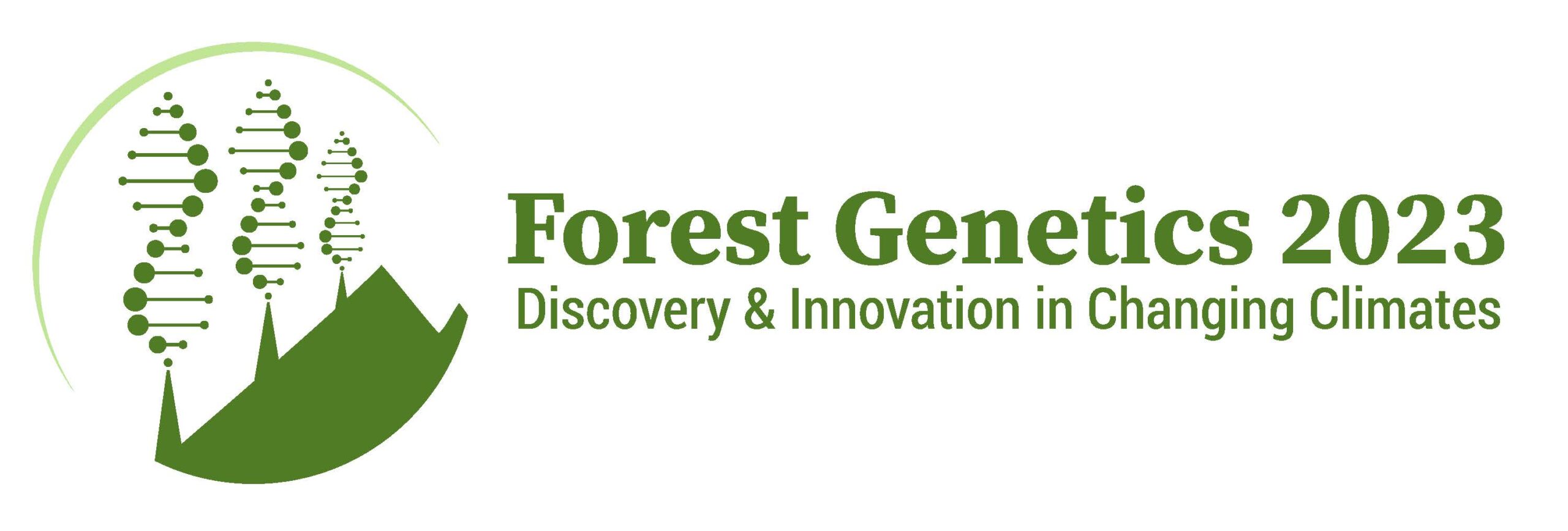KEYNOTE SPEAKERS
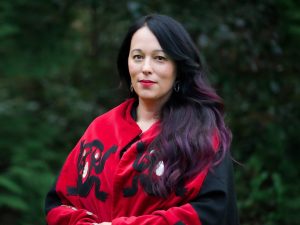
Speaker Biography: Jennifer has a B.Sc in Agroecology and a PhD in Integrated Studies in Land and Food Systems from the University of British Columbia. Her scholarly interests revolve around invasive species management, ecological restoration, and science communication, and she brings with her nearly two decades of experience providing consulting services and on-the-ground management of invasive species for all levels of government and working with Indigenous communities on creating food security plans and land healing initiatives. Jennifer is a proud Nlaka‘pamux woman of mixed ancestry whose family comes from the Lytton First Nation (though she grew up on the coast of BC).
Talk: Reclaiming Forest Genetics as a Practice of Indigenous Land Stewardship
Learning Indigenous languages and spending time with Elders and plant knowledge keepers has made clear that plant breeding and the care of plant genetics have been essential to the practice of Indigenous Land Stewardship within so-called British Columbia. Numerous plant species have multiple names within Indigenous languages, all differentiating them by plant characteristics, uses, and growing sites. Modern genetic tools are filling in knowledge gaps and painting a picture of the importance and desirability of certain tree species demonstrating purposeful introductions as plants and seeds were moved with traveling Indigenous Peoples. I will share how working on land-healing efforts, such as the reclamation and revitalization of Indigenous food systems with St’at’imc and Tsimshian communities, and Cowichan Tribes, as well as the recovery of major climatic events such as wildfire, have brought to light the importance of place-based-plants. As native plant nurseries are on the rise, questions are being raised about the potential impacts of introducing “outside” plants and trees to the lineages of culturally important plant relations. I bring a cautionary message, that we need to work carefully to ensure that restoration efforts are not inadvertently contributing to the continued erasure of the purposeful shaping of Indigenous lands by Indigenous Peoples since time immemorial, while sharing how reclamation of this little recognized dimension of Indigenous land stewardship, could offer hope for climate resiliency.
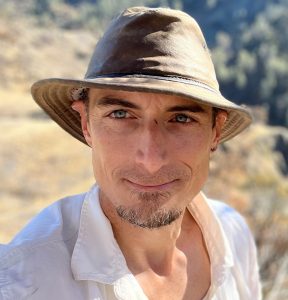
Talk: A Tale of Two Teosintes: admixture, archaeology, and a new model of the origins of maize
Jeffrey Ross-Ibarra is an evolutionary geneticist at the University of California Davis with a background in ethnobotany and population genetics. His group works on plant evolution, using maize and its wild relatives as a model system to investigate questions from genome architecture to local adaptation and experimental evolution. Recent work from the group ranges from studying the nonequilibrium dynamics of background selection on genetic diversity, to methods to detect selection on transposable elements, to the role of gene flow in local adaptation and convergent evolution.
PLENARY SPEAKERS

Speaker Biography: Brian Cullis is a Senior Professor at the National Institute for Applied Statistics Research, Australia, and Professor of Biometry at the University of Wollongong having been appointed to this position in July 2011 after working as a biometrician for more than 30 years with NSW Department of Primary Industries. He has led numerous large-scale industry projects and has extensive experience in the management of large teams of applied statisticians working across multiple research and consulting projects on behalf of the Centre for Biometrics and Data Science for Sustainable Primary Industries, and in his previous role as Director of Biometrics in the NSW Department of Primary Industries.
His interests relate to the application of statistical approaches to the analysis of agricultural and biological data. He has co-authored more than 210 refereed papers. Much research involves the application and development of linear mixed model techniques. He is a co-developer of the ASReml and ASReml-R software systems. He has successfully supervised over 25 Masters and PhD students and has trained, developed and mentored the majority of statisticians currently supporting the grains industry within Australia.
He was the recipient of the E.A. Cornish award in 2015, an award for recognition of a member in the Australasian Region who has given long-time service to the Biometric Society and to the advancement of biometry. He is a past Co-Editor of Biometrics and past Associate Editor of the Australian and New Zealand Journal of Statistics and is currently Co-Editor for Frontiers in Plant Science (Plant Bioinformatics) and Associate Editor of the Journal of Agricultural Science, Cambridge.
Talk: A model-based design approach for the design of selection experiments using ODW
The success of a plant improvement program is based on its ability to maintain high levels of genetic gain. From a purely statistical perspective, maintenance of genetic gain relies on the use of near optimal experiment designs and appropriate methods of analyses. The natural phenotyping instrument for selection in the advanced evaluation phase is a multi-environment trial (MET). The analysis of METs has received wide attention for many years, culminating in the use of a single-step factor analytic mixed model by many plant breeding programs in Australia and elsewhere. There is, however, a dearth of literature concerned with the design of single and multiple selection experiments. There is a long history concerned with the design of experiments for fixed treatment effects, but these designs are not appropriate for selection experiments. In this talk we present a model-based approach for the design of single and multiple selection experiments. Our approach is model-based and hence allows for the use of genetic relatedness for each stage in the design process. The construction of optimal or near-optimal designs is achieved using the R package, ODW. We illustrate our ideas using two MET datasets.
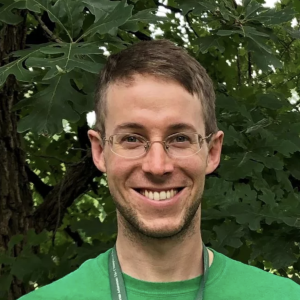
Speaker Biography: Sean Hoban is a Tree Conservation Biologist at The Morton Arboretum in Chicago USA. Sean also has a leading role in the IUCN Conservation Genetic Specialist Group, GEO BON, and the Coalition for Conservation Genetics. He has a PhD from University of Notre Dame, and performed a postdoc with the ConGRESS project and another postdoc at NIMBioS. He has more than 80 publications and currently focuses on developing science-based advice for ex situ collections like botanic gardens, and for bringing knowledge on adaptive capacity of populations to national and global policy. He also has interests in seed dispersal, macrogenetics, hybridization, and population size change over time. You can read more about his group at hobanlab.com.
Talk: Conserving genetic diversity of trees and other plants without DNA data - simple but useful metrics
There is a pressing need to assess the genetic diversity status, and loss or maintenance of adaptive capacity, for large numbers of threatened tree species, quickly. However, DNA based studies remain expensive and time consuming, and we lack genetic data for the vast majority of species. I will present several solutions to this challenge, which use non-genetic data. The first approach regards "indicators" for genetic diversity, based on minimum effective population sizes and conserving genetically distinct populations, which build on principles already in use in forestry. These indicators were presented by Hoban, Laikre, and colleagues in 2020; are being tested and improved at the national scale; and have been recommended by the recent Convention on Biological Diversity (CBD) COP15 agreement. The second approach regards ecogeographic summaries of how much of a species' range is conserved ex situ and in situ. This approach has been used for a decade in the seed bank and botanic garden community to measure progress in safeguarding genetic diversity and in prioritizing species and populations. Lastly I will mention the use of simulations for understanding and improving conservation of genetic diversity, including its uses in the planning of germplasm collections. Although these approaches have many imperfections, I argue that they help identify species experiencing genetic erosion, assist in planning interventions for such species, and make genetic concepts and issues approachable to non-geneticists.
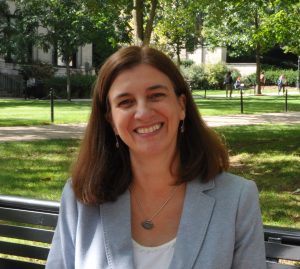
Speaker Biography: Dr. Laura Leites is an associate research professor of quantitative forest ecology at Penn State University where she leads the Quantitative Forest Ecology Lab. She holds a Doctorate in Natural Resources and a Master of Science in Forest Resources from the University of Idaho, and a Bachelor of Science in Agronomy from the Universidad de la República in Uruguay. Her research program focuses on understanding adaptation to climate in forest tree species and their potential responses under a changing climate. Current studies include modeling populations responses to climate change and using these models to guide seed movement for reforestation and restoration. Leites is also an Equity Leadership Fellow in the Office of the Vice Provost for Educational Equity where she leads initiatives to foster greater equity and inclusion across the university.
Talk: Forest trees adaptation to climate: Building on the legacy of genecology to anticipate responses to climate and guide seed movement
At a time when genomics and advanced new technologies propel our knowledge of forest tree species adaptation to climate, a centuries-rich legacy of genecology studies is still providing a solid knowledge foundation and answers to pressing new questions about the potential fate of species under a changing climate. In this talk, I will summarize how this legacy has led to the reanalysis of old provenance trial data across biomes, and around the globe, to anticipate species responses to climate change. I will discuss the main findings related to intraspecific variation in responses to climate, and highlight knowledge gaps that future re-analyses of old provenance trial data could help fill in. I will also provide examples of re-analyses, focusing on temperate broadleaf deciduous and conifer species with distributions in eastern North America. Finally, I will discuss how provenance trial data is informing the delineation of climate-smart seed zones and its associated challenges.
